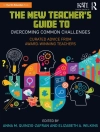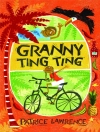‘I plan to use this book with district administrators, building administrators, and building staff. All would find it an excellent tool for bringing about change in their organizations. It is infinitely readable, meaningful, and very useful.’
-Linda L. Elman, Ph.D., Director
Research & Evaluation, Central Kitsap School District, Silverdale, WA
‘The material on the research process and the examples are terrific. Steps are clearly spelled out and practical suggestions hit the major problems teachers encounter in attempting research for the first time.’
-Mildred Murray-Ward, Assistant Provost for Assessment, Professor of Education
California Lutheran University
‘(With) more schools…operating as ′learning communities, ′ this is an excellent tool for schools conducting action research in their own settings. Practitioner Research for Educators is easy to read, has lots of practical advice and examples, and should appeal to the seasoned as well as the novice researcher.’
-Roxana M. Della Vecchia, Professor & Assistant Dean
College of Education, Towson University
Learn to conduct research rather than just consume research!
Each school and classroom is different. Therefore educators must learn, through their own inquiry, how to adjust their practices in ways that will improve teaching and learning. Practitioner Research for Educators explains how the popular technique of practitioner inquiry can be used by teachers, principals, and other school leaders to solve instructional problems and improve student achievement. Viviane Robinson and Mei Kuin Lai include step-by-step instructions, ready-to-use tools, and examples of successful practitioner research projects. Practical yet rigorous, this collaborative process is ideal for use in professional learning communities.
Focusing on the pragmatic aspects of embedding research into everyday practice, the authors demonstrate how to:
- Develop an important, yet manageable research question
- Select research methods appropriate to the question
- Plan and conduct a research project that is both practical and rigorous
- Use inquiry to reveal, critique, and revise taken-for-granted assumptions about how to teach
- Use evidence to check the accuracy of claims about ‘what works’
- Communicate the results of the research to a range of professional audiences
Appropriate for novice and experienced educators alike, this indispensable book provides a functional framework for developing a culture of inquiry among teachers based on high-quality information, mutually supportive critique, and a sustained focus on school improvement. While the primary audiences for this book are teachers, principals, and other school leaders, this valuable resource is equally useful for teacher educators and pre-service teachers.
Jadual kandungan
Preface
About the Authors
Part I: The Need for Practitioner Research
1. Educators as Researchers
2. Tailoring Research to Solve Problems
3. Collaborating to Improve Practice
4. Combining Rigor and Respect
Part II: Doing Practitioner Research
5. Planning Your Research
6. Purposeful Information Gathering: Interviews and Questionnaires
7. Purposeful Information Gathering: Observations and Other Data Collection Methods
8. Purposeful Data Analysis
9. Communicating Your Research
Part III: Practitioner Research and School Improvement
10. Integrating Practitioner Research Schoolwide
References
Index
Mengenai Pengarang
Mei Kuin Lai completed her doctorate at the University of Auckland and has since worked as an education consultant to support practitioners (teachers, principals, administrators) and Ministry of Education officials as they develop inquiry as part of their daily lives. Her current role at the Faculty of Education at the University of Auckland involves bringing the research and practice worlds together by supporting practitioners and education consultants in embedding inquiry into their current roles and by developing collaborative researcher-practitioner projects that improve teaching and learning. She has had extensive experience in training practitioners, particularly those involved in Ministry of Education School Improvement Initiatives, to effectively analyze and use data on student learning to improve school practices. Her work encompasses a variety of school settings across New Zealand, from multicultural urban settings to small rural communities. She is currently in charge of developing a training program for education consultants (School Support Services Facilitators) at the Faculty of Education to develop inquiry as part of their roles.












